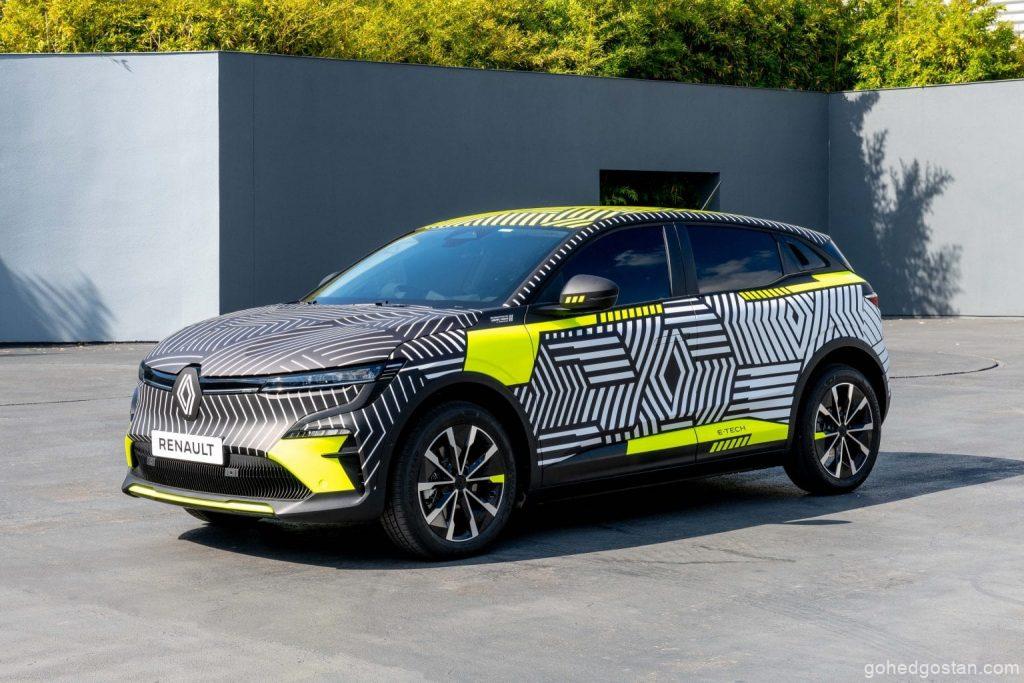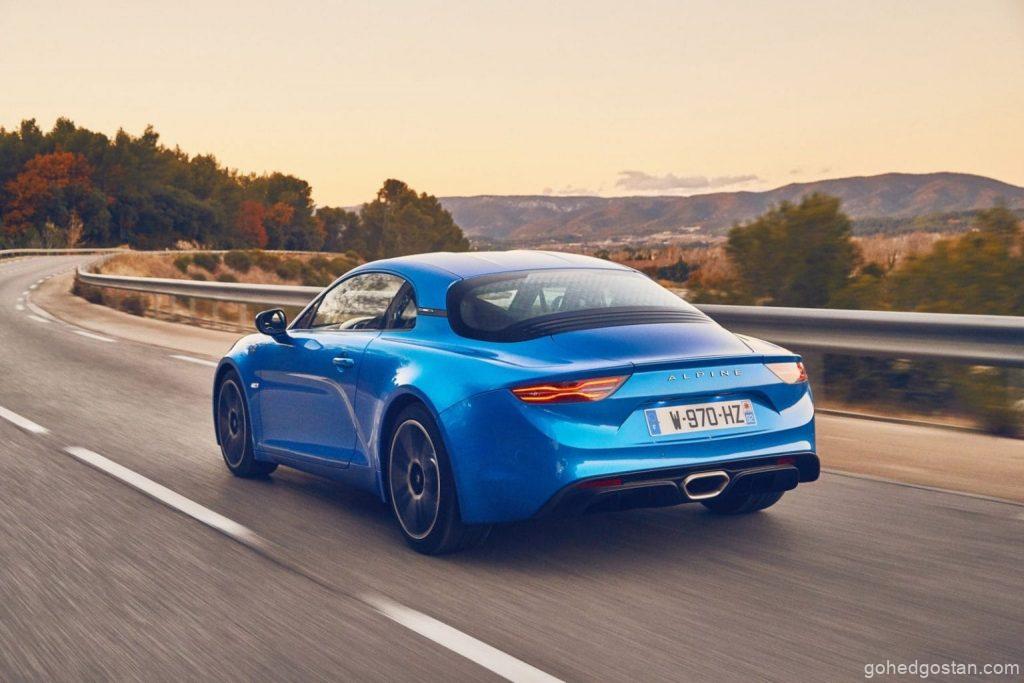Renault Menandatangani Urus Janji Bateri EV Dengan Envision Dan Verko
Dua gigafactories baharu akan dibina di Perancis untuk mempercepat cita-cita Renault EV
Renault telah mencapai tonggak penting dalam rancangan strategi Renaulution dengan menandatangani perjanjian perkongsian dengan Envision AESC dan Verkor untuk menghasilkan bateri kenderaan elektrik di Perancis. Ini akan melengkapkan kerjasama yang ada dengan LG Chem, yang akan terus membekalkan bateri untuk kilang kereta elektrik semasa dan untuk MeganE yang akan datang.
Lagi mendalam mengenai kerjasama dengan Envision AESC, Renault mengatakan ia akan bekerjasama dengan syarikat bateri terkenal itu untuk mengembangkan gigafactory mereka di Douai. Dengan kapasiti 9 GWh pada tahun 2024 dan dengan tujuan mencapai 24 GWh menjelang 2030, kilang ini akan menghasilkan bateri untuk model EV mampu miliki oleh Renault termasuk R5 yang akan datang. Envision akan melabur sehingga € 2 bilion ke dalam kilang baharu dan dengan itu mewujudkan 2,500 pekerjaan baru menjelang 2030.

Selain itu, kedekatan gigafactory ke lokasi pengeluaran Renault ElectriCity di Douai, Maubeuge dan Ruitz akan memberi Renault peningkatan yang signifikan terhadap kecekapan rantaian pengeluaran EVnya.
Disamping itu dengan Verkor, Renault mempunyai Memorandum Persefahaman yang akan menyaksikan pembuat kenderaan memperoleh 20% kepentingan dalam syarikat baharu yang berpengkalan di Grenoble. Kedua-dua syarikat akan bergabung untuk mengembangkan bateri berprestasi tinggi yang sesuai untuk segmen C dan segmen Renault yang lebih tinggi, dan juga untuk model Alpine.

Fasa awal perkongsian akan melibatkan pembiayaan pusat R&D yang disebut Verkor Innovation Center dan barisan perintis untuk prototaip dan pengeluaran sel bateri dan modul di Perancis seawal tahun 2022. Fasa kedua akan menyaksikan Verkor membina gigafactory pertama untuk bateri prestasi tinggi di Perancis, dengan kapasiti awal 10 GWh untuk Renault Group dari 2026, berpotensi meningkat menjadi 20 GWh menjelang 2030.

Inilah siaran media Renault dengan lebih maklumat:
MEDIA RELEASE
Renault Group announces today its strategy for EV battery design and production in France. A major milestone of the ‘Renaulution’ road map, the Group’s battery strategy comes to life through the signing of two major partnerships: with Envision AESC – a global player in world-leading battery technology and smart, digitalised, low-carbon battery plants, and a long-standing partner of Nissan – and Verkor, the Grenoble-based start-up specialized in development of EV battery cells. This strategy will help Renault Group become a more competitive and efficient EV player, accelerate its industrial transformation, and reach its ecological transition targets.
These two most recent partnerships go hand in hand with existing programmes within Renault Group, in particular the historic agreement with LG Chem which currently supplies battery modules for Renault’s electric range and for the upcoming MéganE. In parallel, there are on-going discussions with ACC to potentially join the ecosystem as of 2027. Research also continues within the Alliance to deploy solid battery technology from 2030, with the ASSB project (All Solid-State Battery technology).
Our battery strategy builds on Renault Group’s ten years of experience and investment in the electric mobility value chain. The latest strategic partnerships with Envision AESC and Verkor greatly bolster our position as we ensure the Europe-based production of one million electric vehicles by 2030. This marks a major milestone as we strengthen our competitive edge, by rooting our Group in the underlying momentum of French industry and striving to reach our carbon neutrality objectives. The Group thus reaffirms its willingness to produce popular, affordable, and cost-effective electric cars in France, said Luca de Meo, CEO of Renault Group.
Envision AESC: A gigafactory in Douai for affordable, European-made EV models.
As part of its EV strategy, Renault Group is partnering with Envision AESC which will develop a gigafactory in Douai with a capacity of 9 GWh in 2024 and with aim of reaching 24 GWh by 2030. As the battery arm of global green tech company Envision Group, it will invest up to €2 billion to produce latest technology, cost-competitive, low-carbon and safe batteries for electric models, including the future R5. Thanks to this partnership, Envision AESC forecasts 2,500 new jobs by 2030.
The proximity of the Envision AESC’s gigafactory to Renault ElectriCity production sites at Douai, Maubeuge and Ruitz, which will create 700 additional jobs in the Hauts-de-France region, means Renault Group can significantly boost its competitive edge and greatly improve the efficiency of its EV production chain.
Douai’s gigafactory opens the way for the production of low-carbon batteries as part of the objectives outlined in the European Green Deal and for the development of closed-loop recycling solutions for production waste and end-of-life batteries. In line with commitments made by the Renault Group, it will significantly contribute to achieving carbon neutrality in Europe by 2040 and worldwide by 2050, with EV sales making up 90% of all Renault brand sales by 2030.
Envision Group’s mission is to be the net zero technology partner of choice for global enterprises, governments, and cities. We are therefore delighted that Renault Group chose Envision AESC batteries for its next generation of EVs. Investing to build a new gigafactory in northern France, we aim to support the net zero carbon transition by making high performance, longer range batteries and EVs affordable and accessible for millions more motorists. This first phase development will unlock future large-scale investment to grow the local supply chain and develop the whole life cycle opportunities of batteries, including energy storage, battery reuse, smart charging and closed loop recycling. It has the potential to create thousands of new high value green jobs as part of an end-to-end battery ecosystem in the region, said Lei Zhang, founder and Chief Executive Officer of Envision Group.
Renault Group and Verkor: A pilot production line for high-performance batteries by 2022 and a state-of-the-art giga factory by 2026.
In addition to its partnership with Envision AESC, Renault Group has signed a Memorandum of Understanding to become shareholder of Verkor with a stake of over 20% in the company and plans to join the consortium that was created around the French start-up in 2020. The consortium aims at tackling challenges relating to digitalisation, de-carbonisation, and the strengthening the French and European industries within the sector.
Renault Group and Verkor intend to develop jointly a high-performance battery suitable for the C and higher segments of the Renault range, as well as for the Alpine models. Together with the consortium, they will help create of more than 200 direct jobs.
The initial phases of the partnership will involve the financing of a R&D centre (Verkor Innovation Centre) and a pilot line for battery cell and module prototyping and production in France as early as 2022. The second phase will see Verkor moving forward to create the first gigafactory for high performance batteries in France, with an initial capacity of 10 GWh for the Renault Group from 2026, potentially rising to 20 GWh by 2030.
Cooperation between Renault Group and Verkor will be based on a common road map to reduce carbon emissions from battery manufacturing by 75% compared to traditional process, and to establish a supply chain that allows traceability and secures the availability of raw materials used in EV models.
We are proud to be associated with Renault Group and look forward to delivering on our common vision of making e-mobility widely available, through this partnership. This is a major deal which demonstrates our progress along our roadmap to generate up to 50 GWh of battery cell production capacity by 2030 – a cornerstone in developing a competitive, sovereign and sustainable battery supply chain in Europe, said Benoit Lemaignan, CEO of Verkor.
The capital investment into Verkor is subject to the conditions that are normally applicable to this type of transaction, in particular the regulatory consultation of labour relations bodies.


No Comment